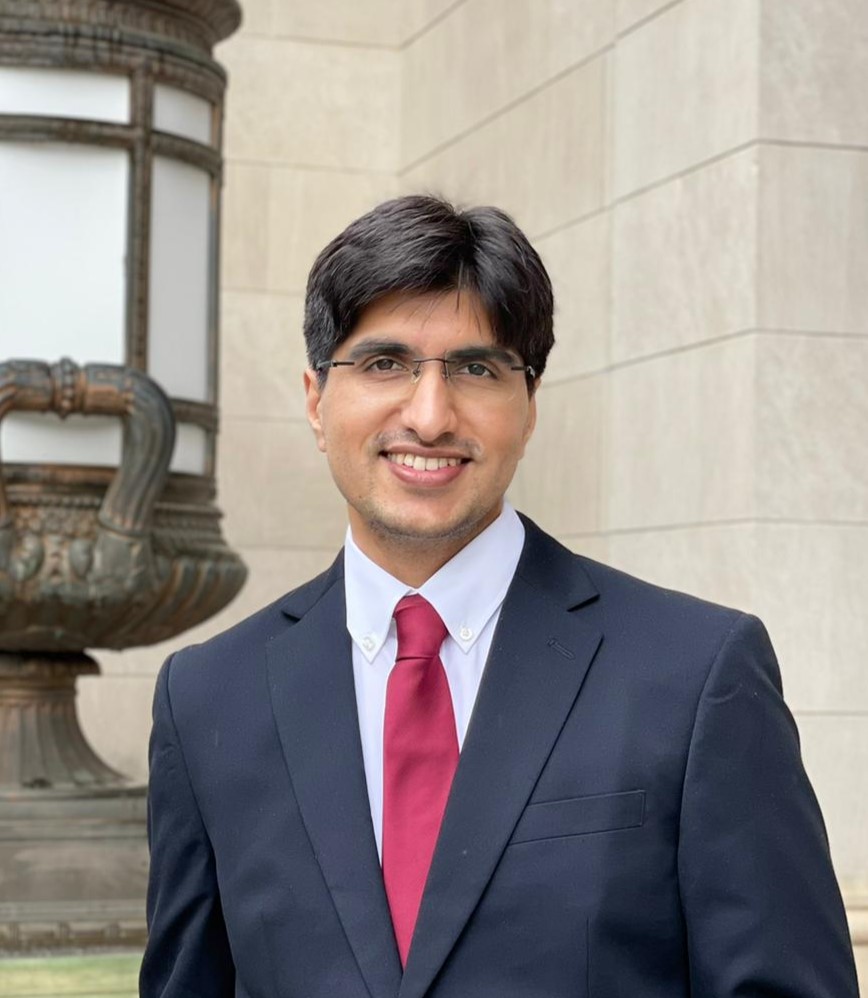Meet Our New Faculty | Rahul Hemrajani
March 20, 2023
We extend a warm welcome to Mr. Rahul Hemrajani who has joined us as Assistant Professor of Law. He has previously practiced with Lakshmikumaran Sridharan Associates and has taught at the Tamil Nadu National Law University, Trichy. He has taught courses on jurisprudence, political obligations, taxation law, and law & social transformation.
Rahul is currently a PhD candidate at the University of South Carolina, USA. His doctoral thesis is titled: “A Comparative Measure of Judicial Legitimacy”. His main area of research centers around the empirical analysis and evaluation of judicial institutions.
In this interview, he shares more about his interests and his work.
 1. Can you tell us more about yourself/your background?
1. Can you tell us more about yourself/your background?
I was born in Bangalore and did most of my schooling here. After graduating with a BBA LLB from Symbiosis Law School, Pune, I worked as a litigator at a tax law firm. However, I soon discovered that the legal rules I had learned in law school were not enough to understand the complex realities of legal practice. I wanted to learn more about the societal forces that shape legal processes and outcomes. This curiosity led me to pursue a MA from Ashoka University and an LLM from Azim Premji University in Bangalore. There, I gained exposure to various interdisciplinary perspectives on law, including those from political science, sociology, and, philosophy. Both my teaching and research have since focused on this broader approach to studying law—one which recognizes the difference between law in books and law in action.
Outside of work, I am what the Japanese would call an Otaku— I enjoy gaming, reading comics, and watching animated films. I also like reading books on science and politics.
2. What are your main areas of interest and teaching? How did your interest in these areas begin?
In my research, I focus on the application of social science methods to the study of law. In particular, I use empirical methods including regression analysis, text classification and machine learning to study judges and judicial institutions.
I am interested in teaching courses on taxation and jurisprudence, subjects I have taught multiple times before. As a former lawyer focusing on doctrinal law, learning social science methods during my doctoral studies has been a steep yet rewarding learning curve. So I would also like to teach elective courses and workshops on empirical methods, and train aspiring lawyers in new and exciting ways of looking at the law.
3. Tell us more about what you will be teaching at NLS.
This trimester I will be teaching an elective called “An introduction to Empirical Legal Studies”. Empirical legal research is increasingly becoming a vital component of legal analysis. Both the courts and civil society are becoming cognisant of the possibilities and value of empirically grounded evidence-based research. It is a valuable tool to evaluate the effectiveness of policies and to identify areas that require reform. The course, I believe, will help students acquire a set of skills that will enable them to analyze and critique legal issues in a more rigorous and objective manner.
4. Your thoughts on starting your teaching journey at NLS?
I am very excited to join the intellectual community at NLS. NLS is home to several law and society scholars whose work I have read and admired. I look forward to fruitful research collaborations with the faculty and students. I am also excited at the prospect of teaching again at a premier National Law School, with students drawn from all over India.
5. Could you highlight some of your key projects or publications?
Most of my research centers around the empirical analysis and evaluation of legal institutions. For example, as part of my doctoral dissertation project, I use data from 140 countries to examine whether procedural fairness can entrench public support for courts. Similarly, in one of my works published in the Delhi Law Review, I evaluate whether the collegium system has an effect on efficiency in judicial appointments at the Supreme Court of India. In another published piece, I study the temporal workload of the Supreme Court of India, and the effect of source cues on public opinion, and bias in protest policing in New Delhi.
Apart from my doctoral work, I am working on projects that investigate decision fatigue in lower courts in the US, heuristic biases in remote hearings, the influence of ideology in the Supreme Court’s decision-making, and fairness in listing procedures at the Supreme Court.
To know more about Rahul’s publications, please visit his profile in our faculty directory.

